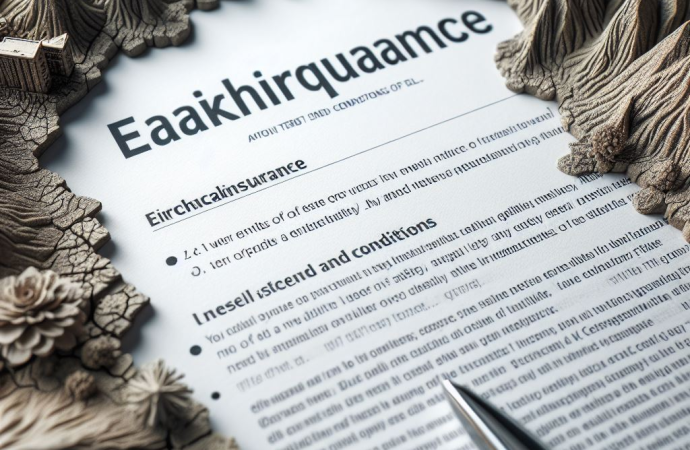Introduction Meet John Doe, a seasoned insurance advisor with over 15 years of experience in the field. John specializes in property insurance, with a particular focus on earthquake coverage. He’s here to debunk some common misconceptions and shed light on the misunderstood aspects of earthquake insurance. Understanding Earthquake Insurance Earthquake insurance is a type of
Introduction
Meet John Doe, a seasoned insurance advisor with over 15 years of experience in the field. John specializes in property insurance, with a particular focus on earthquake coverage. He’s here to debunk some common misconceptions and shed light on the misunderstood aspects of earthquake insurance.
Understanding Earthquake Insurance
Earthquake insurance is a type of property insurance that covers damage to your home caused by an earthquake. While it might seem like a straightforward concept, there are many nuances that homeowners and renters often overlook. For instance, did you know that most standard homeowners and renters insurance policies do not cover earthquake damage? This is why having a separate earthquake insurance policy can be crucial, especially if you live in an earthquake-prone area.
Common Misconceptions about Earthquake Insurance
There are several misconceptions about earthquake insurance that can lead to costly mistakes. One common misconception is that all earthquake insurance policies are the same. In reality, coverage can vary greatly depending on the insurance provider and the specific policy. Another misconception is that earthquake insurance is not necessary if you don’t live in a high-risk area. However, earthquakes can occur anywhere and can cause significant damage even in areas not typically considered high-risk.

Picture by: Bing Designer
The Importance of Earthquake Insurance for Homeowners and Renters
As a homeowner or renter, protecting your investment should be a top priority. Earthquake insurance can provide peace of mind knowing that you will be financially protected in the event of an earthquake. This is particularly important in high-risk areas where earthquakes are more common. But even if you don’t live in a high-risk area, having earthquake insurance can still be beneficial. After all, earthquakes are unpredictable and can cause significant damage.
How to Choose the Right Earthquake Insurance Policy
When choosing an earthquake insurance policy, it’s important to consider the coverage options, deductibles, and exclusions. Coverage options can include dwelling coverage, which covers the cost to repair or rebuild your home, and personal property coverage, which covers damage to your belongings. Deductibles are the amount you have to pay out of pocket before your insurance kicks in. Exclusions are specific situations or types of damage that are not covered by the policy.
Making the Most of Your Earthquake Insurance
To make the most of your earthquake insurance, it’s important to regularly review your policy and understand what is and isn’t covered. If you’re unsure about anything, don’t hesitate to ask your insurance provider for clarification. In the event of an earthquake, knowing how to make a claim and what to expect can make the process much smoother.
Conclusion
Understanding earthquake insurance can be complex, but it’s an important part of protecting your home and your financial future. Whether you’re a first-time home buyer, a renter, or a long-time homeowner, it’s never too late to learn about earthquake insurance and consider whether it’s right for you.
Key Points to Consider When Choosing Earthquake Insurance
| Coverage | Importance | Tips |
|---|---|---|
| Dwelling Coverage | High | Ensure it’s enough to rebuild your home |
| Personal Property Coverage | Medium | Don’t forget about your belongings |
| Additional Living Expenses (ALE) | Low | Consider your needs if you can’t live in your home |
Remember, the right earthquake insurance policy for you depends on your specific needs and circumstances. It’s always a good idea to speak with an insurance professional like John Doe to ensure you’re making the best decision for your situation.
















